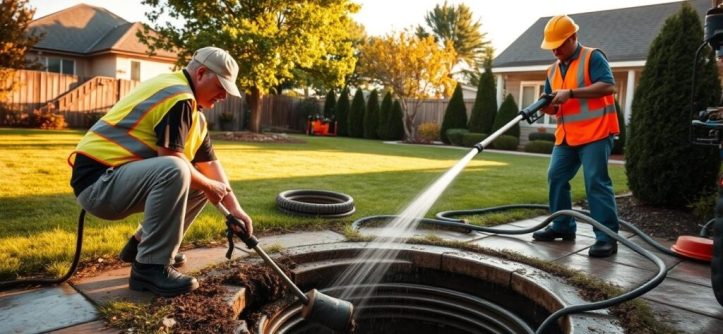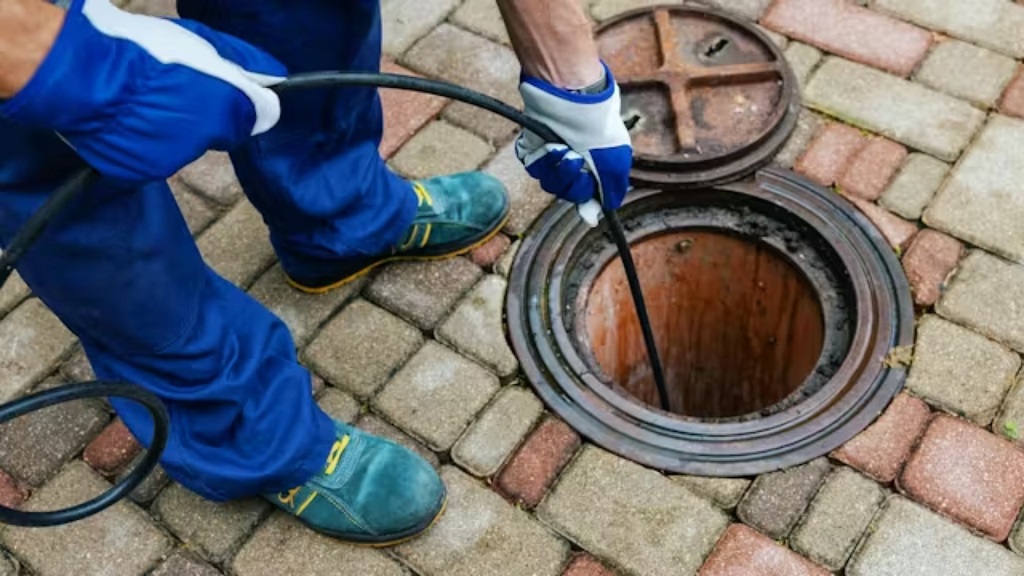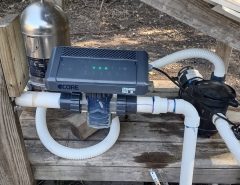Living in Texas means dealing with unique plumbing challenges that many homeowners face daily. From Houston’s clay soil to hard water mineral buildup, drain clogs become a common household problem. Whether you’re battling kitchen grease or bathroom hair clogs, knowing the right drain cleaning techniques can save you time and money.
This guide reveals fast, effective solutions specifically designed for Texas homes — plus prevention strategies and professional insights to keep your drains flowing smoothly year-round.
Understanding Common Drain Problems in Texas Homes
Regional Factors Affecting Drainage
Texas homes face distinct drainage challenges due to clay-heavy soil that expands and contracts with weather changes, potentially affecting underground pipes. Additionally, many areas experience hard water with high mineral content that gradually builds up inside drain lines.
Typical Clog Culprits
-
Kitchen drains: grease, food particles, and soap residue
-
Bathroom drains: hair, soap scum, and personal care products
Understanding these issues helps homeowners choose the most effective cleaning methods for their specific situation.
Quick DIY Drain Cleaning Solutions That Actually Work
Hot Water Flush for Grease Clogs
Boil a large pot of water and pour it slowly down the affected drain in three stages. The hot water liquefies grease buildup, allowing it to flow through more easily. (Avoid boiling water on PVC pipes to prevent damage.)
Baking Soda and Vinegar Natural Cleaner
Pour ½ cup of baking soda followed by ½ cup of white vinegar. Cover the drain and let it fizz for 15–30 minutes, then flush with hot water. This eco-friendly solution safely dissolves organic matter and soap residue.
Dish Soap and Hot Water for Stubborn Blockages
Mix dish soap with hot water and pour it down the drain. Let it sit for 20 minutes, then flush again with hot water. The soap acts as a lubricant, breaking down grease and helping debris slide through the pipes.
Advanced Techniques for Persistent Drain Issues
Manual Removal Using Basic Tools
-
Wire hanger: Hook out hair or debris from shallow clogs.
-
Wet/dry vacuum: Use maximum suction to remove surface-level blockages.
Proper Plunger Techniques for Different Drains
-
Sink drains: Use a cup plunger; cover overflow holes for better pressure.
-
Bathtub/shower drains: Use a smaller, flat plunger and remove the drain cover if possible.
Knowing When to Call a Professional
Warning Signs of Serious Plumbing Problems
-
Multiple drains backing up at once
-
Gurgling sounds from other fixtures
-
Water backing up into other drains or toilets
These symptoms often indicate main sewer line issues requiring professional intervention.
Cost of Professional Drain Cleaning in Texas
Standard drain cleaning: $100–$250
Main sewer line cleaning: $300–$500+
Weigh the cost of service against the potential expense of DIY damage or chemical misuse.
Prevention Strategies for Long-Term Drain Health
Kitchen Drain Maintenance Tips
-
Never pour cooking grease down the drain
-
Use strainers to catch food waste
-
Flush with hot water after each use
-
Grind ice cubes and citrus peels monthly for disposal cleaning
Bathroom Drain Protection
-
Install hair catchers and clean them weekly
-
Rinse with hot water after showers
-
Use enzyme-based cleaners monthly to dissolve organic matter naturally
Natural vs. Chemical Drain Cleaners
Environmental and Safety Considerations
Natural cleaners: Safe for pets, pipes, and the environment.
Chemical cleaners: Work fast but can corrode older pipes and produce toxic fumes.
Which Works Best for Different Clogs?
-
Grease/organic matter: Chemical cleaners (use sparingly)
-
Hair or soap buildup: Natural + manual methods
-
Mineral buildup: Vinegar and enzyme-based solutions
Emergency Drain Cleaning Tips
Handling Complete Blockages at Night or Weekends
Start with safe methods like the hot water flush or baking soda + vinegar combo.
Locate the main water shutoff valve and have basic tools ready (plunger, drain snake, flashlight).
Temporary Fixes Until Help Arrives
-
Limit water use in affected areas
-
Use buckets to collect leaks
-
Document issues with photos/videos for the plumber
Seasonal Drain Maintenance for Texas Homes
Summer Heat and Plumbing Stress
Extreme Texas heat can expand pipes and worsen cracks. Storm debris may also clog outdoor drains — clean gutters and downspouts regularly.
Winter Preparation and Freeze Protection
Even mild Texas winters can freeze exposed pipes. Insulate vulnerable lines and reduce holiday grease disposal to prevent seasonal clogs.
Common Mistakes to Avoid
Overusing Chemical Drain Cleaners
Excess use can damage pipes and create toxic gas when mixed with other products. Use only when absolutely necessary and with good ventilation.
Improper Tool Use
Avoid makeshift tools like bent hangers for deep clogs — they can puncture or scratch pipes. Always use proper drain-cleaning equipment and apply gentle pressure.
Maintaining Long-Term Drain Health
Monthly Maintenance
-
Hot water flushes
-
Enzyme-based cleaner
-
Check for early signs of wear or leaks
Annual Professional Inspections
Schedule yearly drain inspections with a plumber. Camera inspections can catch root intrusion, corrosion, or hidden blockages before they worsen.
Related Topics: Traditional English Gardens Are Back
Conclusion
Keeping Texas drains clear requires a mix of DIY know-how and timely professional care. From simple hot water flushes to natural baking soda-vinegar treatments, you can handle most clogs safely.
But when warning signs appear like multiple backups or gurgling sounds don’t hesitate to call a professional. Preventive maintenance, regular cleaning, and seasonal preparation will keep your Texas home’s plumbing running smoothly year-round.
Frequently Asked Questions
How often should I clean my drains?
Clean monthly using hot water and natural cleaners like baking soda and vinegar. Kitchen drains may need more frequent attention.
Are chemical cleaners safe for older Texas homes?
Not always. They can corrode older metal pipes — stick to natural alternatives if your plumbing is aging.
What if multiple drains back up at once?
That usually means a main sewer line issue. Stop using water and call a licensed plumber immediately.
Does Texas hard water cause more clogs?
Yes. Mineral buildup is common — use vinegar or enzyme-based solutions regularly to prevent scaling.
When should I call a professional?
If DIY methods fail, or you notice recurring clogs, slow drainage in multiple fixtures, or strange gurgling noises.






Leave a Reply